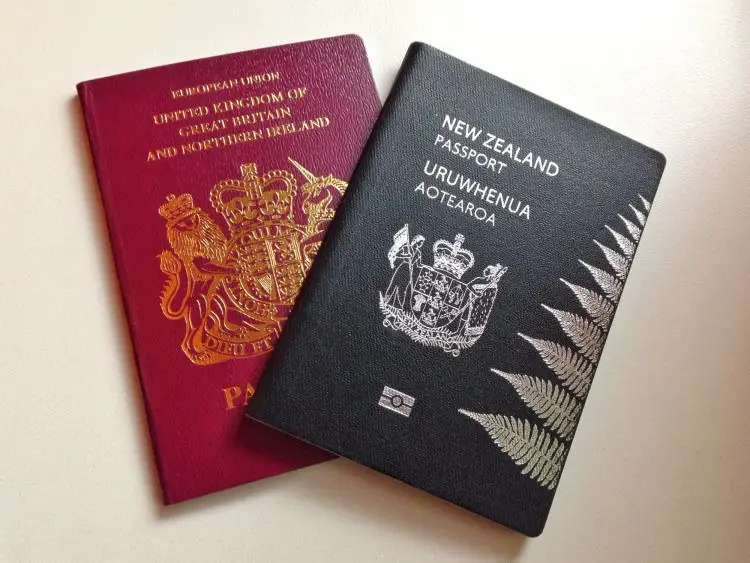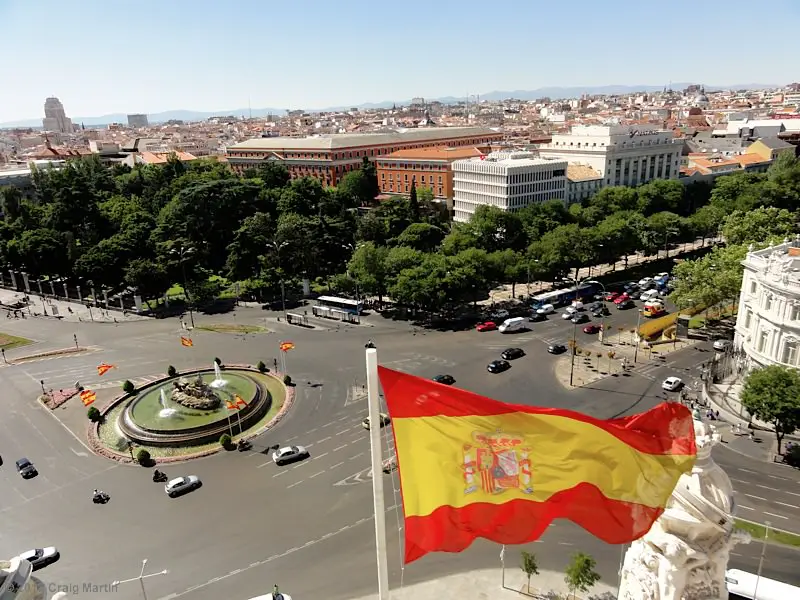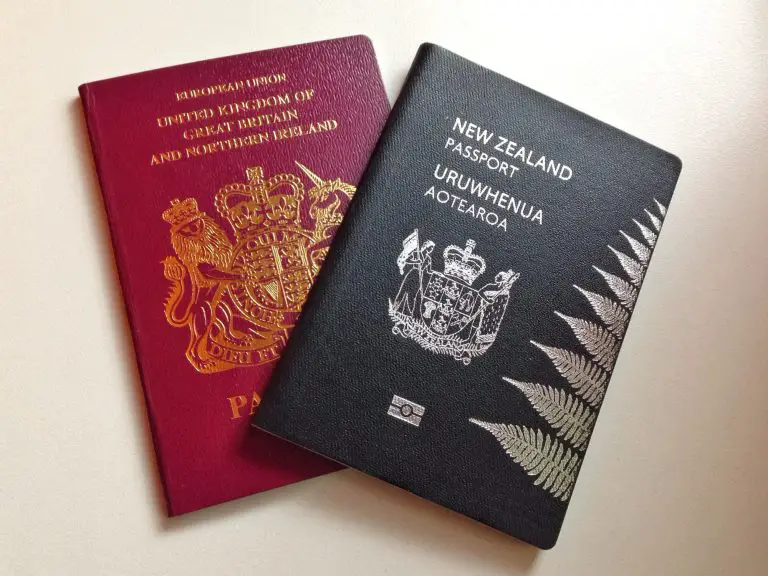Why you shouldn’t move to Spain
Spain is a beautiful country, with an incredible history, fantastic food and wonderful people. It is a great place to go on holiday, but you shouldn’t plan to move there without being aware of the limitless amount of frustration that lies before you.
1. Bureaucracy
The bureaucracy in Spain is second to none. It’s truly amazing how much time and effort needs to go into achieving quite simple tasks, and how many of these little tasks need to be done to be able to live and work in Spain legally. I decided to get a work and holiday visa, and when investigating the process I found an infogram that explained which countries had reciprocal agreements and whether they were truly equal. I was surprised to see that although Spain and New Zealand had an agreement, it was more difficult for Kiwis to work in Spain than vice versa.
It was true that there was a lot of paperwork to do before I left home, and I thought that was the extent of the discrepancy. I was wrong. The Kiwi system is quite streamlined because of the number of countries that are part of the programme, and because of its popularity. As I discovered when I arrived in Spain, citizens from only two countries (New Zealand and Canada) can apply for the Work and Holiday visa, and the quota is never filled — which means the local bureaucrats in the small city where I was living had never heard of it.
Even this is understandable, because little-known systems are always going to be a bit difficult. But that doesn’t explain why it’s so hard to get a bank account, or why Craig couldn’t register as a resident despite having a UK passport — that’s a pretty common task.

2. Urgency!
In the true spirit of bureaucracy, everything takes a long time to process — at least on the official side of things. Once you’ve handed in your documents, you should expect to wait a month for anything at all to happen. However, if YOU have to do something, it’s always URGENT. Very urgent. At work one day, the secretary interrupted my class to tell me that I had to get a Social Security number immediately. That afternoon it was sadly impossible since the office is closed after lunch, but the next day would be okay — I had to work the next day, but it was imperative that I find time to walk halfway across town to get a number I would have got automatically within a week or so.
Similarly, I’d done everything I’d thought necessary to get a bank account, and had had the account for about two months when I received a call from the director of the branch, saying that they needed to see my residency card immediately or they would cancel my account. The fact that I was still waiting for my card to be processed wasn’t an excuse. Nor was the fact that I was on holiday 600km away. They put my account on hold and wouldn’t reopen it until they’d seen the real card. Luckily I’d withdrawn most of the money in the account and I got my residency card within a week. Of course I had to wait another week or so for them to unblock my account.
The joy of bureaucracy continued when I later found out that they’d cancelled my visa debit card, and that I had to jump through hoops to get a new one. I did, and then noticed that they’d charged me for it, despite telling me that it was free. And the only way to get a refund was to cancel the card I’d worked so hard to get.

3. Work
The unemployment rate in Spain is 25%, and over half of all young people don’t have a job. This means if you’re looking for an entry-level job, you’re really unlikely to find one. And if you do find work, the pay is spectacularly low — in A Coruna I earned one-quarter per hour of what I did in Australia.
If you can work online, great — but make sure you find accommodation with internet, because it’s expensive to set up a connection for yourself. Plus you need to have a local bank account and identification number — which takes us back to point number one: bureaucracy.
Spain is one of my favourite countries, and all in all the relaxed lifestyle makes all the effort worthwhile. But I certainly would have thought twice if I’d known just how much work it was going to be to live here.







Having lived in Lithuania for the past 15 years, I can say that the author’s comments concerning bureaucracy and employment are equally relevant to this country. I suspect that they’re equally true for good portion of the countries that were part of the former Soviet bloc (not to mention a lot of other countries throughout the world). One could easily substitute “Spain” with “Lithuania” throughout, change a few details in the first and last three paragraphs, and have another article warning of the perils of moving to Lithuania. God forbid you try to do something really challenging like buying a house or flat (which almost gave my wife a nervous breakdown–seriously)! What the author has to say is relevant; it just makes me wonder why excessive bureaucracy is so widespread or in other words why many governments/civil services (even businesses at times!) seem to hinder more often than facilitate. Hey, from where I’m standing (sitting actually) at least the climate is much nicer in Spain.
You’re right Alan, I think bureaucracy is crazy in a lot of countries — we’re in the Czech Republic at the moment and our host has been telling us stories about how it works here; and it’s spectacular. Apparently they haven’t quite started to use computers for visa extensions and every six weeks he has to wait in line from 4am to get a number to get an appointment that lasts for half an hour — most of which is spent waiting for them to get his file from the basement. They then sign a form and that’s it.
Perhaps we’re just spoiled being from New Zealand — we have our own issues, of course, but basic visa processes tend to be a lot more straightforward.
I agree that bureaucracy in Spain is a pain. It is ridiculously slow and inefficient and they change or make up the rules as they go along, but there are a lot of positives to living here too. I remember when I first moved to Japan and the paperwork was just as drawn out – they were just honest about how long things would take and did it all with a smile which I must admit is sadly lacking here in most parts! I also had problems getting a bank account and setting up my internet at first – companies were insisting on a residency card which as an EU citizen is something that we just can’t get! But eventually everything gets sorted out and life here is pretty good.
You say that in La Coruna you earned a quarter of your hourly rate in Australia but how did the cost of living compare? I’ve only ever been to Australia as a tourist but as I understand it the cost of living is very high. EFL teachers here are not very well paid compared to Asia for example, but since I arrived here almost 5 years ago I’ve managed to have a nice life and pay for my own flat and my bills.
I do agree with the points that you’ve made but don’t think they are so different in other parts of the world.
Hi Jon, I’d say living costs in Australia are roughly double, so it’s definitely more expensive but it’s also easy to save there. Don’t get me wrong — I love Spain, I’ve said that (a lot) in other posts, I just wanted to balance things out a little by talking about the difficulties. And you’re right, these issues aren’t limited to Spain.
I agree with the others, Linda – pretty much every country in Europe is complicated like this, with the UK and Ireland being notable exceptions.
Ah, I disagree with you there, Steffi — the UK is pretty complicated too. For us it was okay because we did A LOT of paperwork before we arrived, and organised a bank account before we arrived in England too. But our friends fell into the trap of not being able to get a bank account without a permanent address, and not being able to get a flat because they didn’t have a bank account. But yes, I’m starting to see that every country has its own bureaucratic issues.
Wow I never realized complicated Spain could be. But then again, I lived in Germany for over 5 years and it was just as complicated. I think if you are planning to live in a different country you should always have an open mind. When I moved I was so focused on how thing were and what I was used to and this is what made my transition difficult.
Continuate così, bravi!
More than ever I am convinced there are only 5 decent countries in this world. Canada, UK, Australia, USA and New Zealand. These countries offer a balance of a good lifestyle and social services (maybe less with the USA), all other countries seem to be a bureaucratic nightmare coupled with high unemployment. Our countries are not perfect but people still want to move to our countries for the opportunities and freedoms they offer.
Hi Bassman, while I agree that the countries you mentioned are great, there are lots of other decent ones out there. I think we just need to be aware of how things are different. We just spent (another) year in Spain and it was A LOT better this time because we knew what to expect in terms of bureaucracy and we managed to avoid a lot of it!